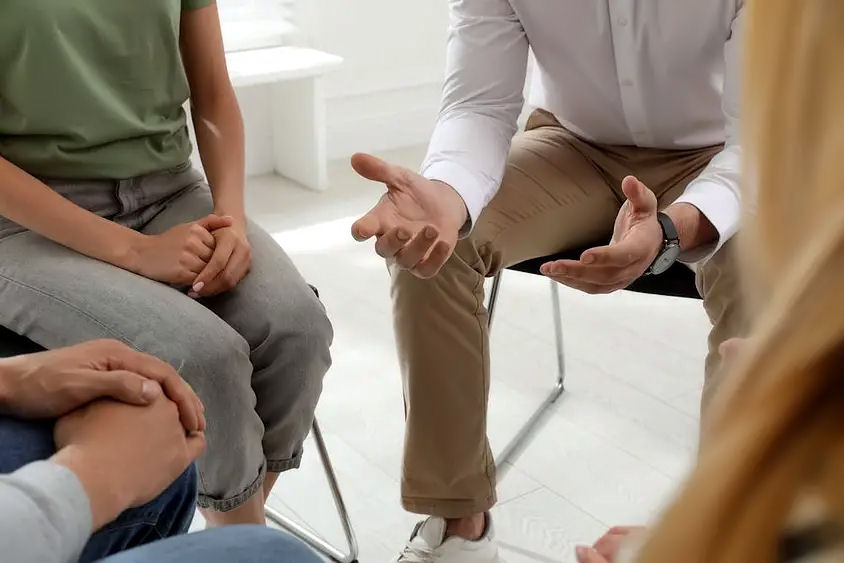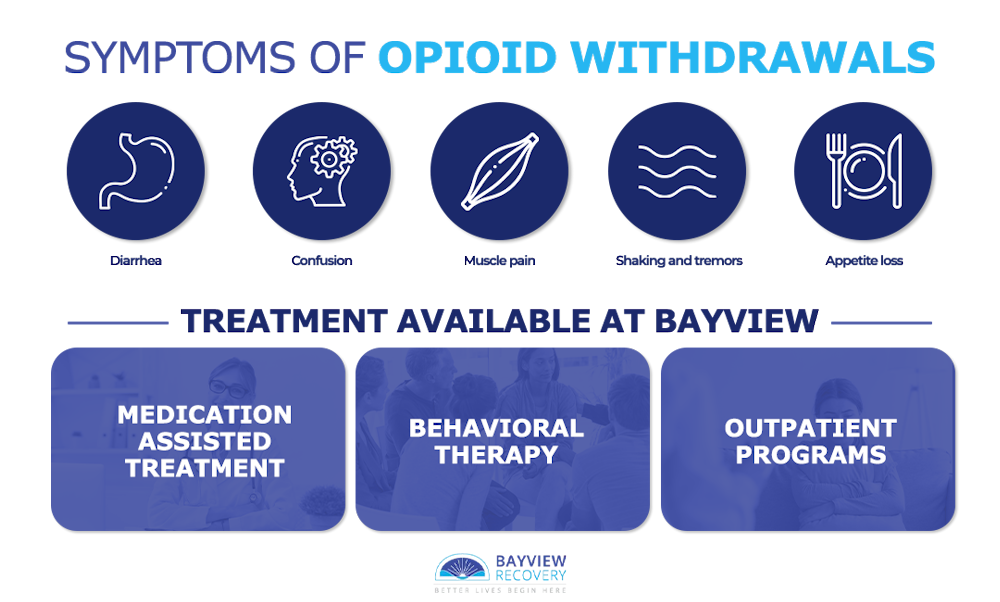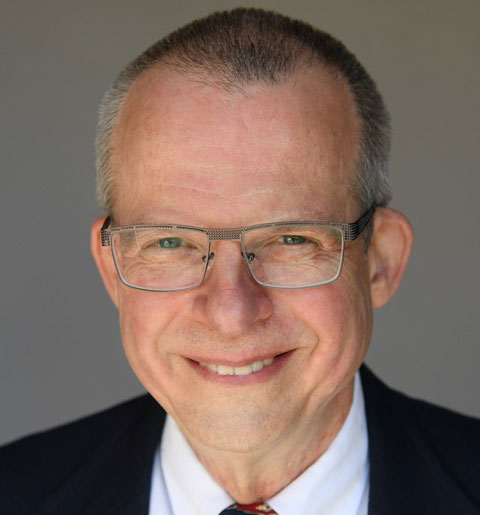Opioid Addiction Rehab Center
The term “opioid” refers to both natural and synthetic versions of opioid drugs derived naturally from the opium plant. Opioids have legitimate medical uses and also are commonly prescribed to help with severe pain. Opioids block neurotransmitters in your brain that respond to dopamine, the hormone responsible for pleasure and anticipation. With these receptors blocked, dopamine then continues to flow freely throughout the brain producing feelings of intense euphoria and sedation.
Opioids, like all narcotics, are also highly-addictive for this reason. Users will want to repeat these experiences, but they will require increasing amounts of drugs to achieve their earlier highs. Also, as users increase their habits, the brain will produce less dopamine, which forces users to rely on opioids in the future to achieve these pleasurable sensations. Our Washington rehab center helps treat various addictions including opioids and opiates.

What’s the Difference Between Opioids and Opiates?
Opioids and opiates are two different classifications of drugs, although they are often used interchangeably. The primary difference between opioids and opiates is their origin.
Opiates are naturally occurring drugs derived from the opium poppy plant. Examples of opiates include codeine, morphine, and heroin. Traditionally, the term opiates refer to drugs with morphine-like effects. These drugs bind to opioid receptors in the brain and body, resulting in pain relief, sedation, and euphoria.
On the other hand, opioids are a broader classification of drugs that include both natural and synthetic substances that also bind to the same receptors as opiates. Examples of opioids include fentanyl, oxycodone, and hydrocodone. Unlike opiates, opioids are synthetic or semi-synthetic compounds designed to produce morphine-like effects.
In recent years, the term “opioid” has been used more frequently to describe the whole class of drugs, including both opiates and other synthetic compounds. Therefore you can consider all opiates to be opioids but not all opioids are opiates.
Common Opioids Include:
- Codeine
- Hydrocodone (Vicodin)
- Methadone
- Oxycodone (OxyContin, Percocet)
- Meperidine (Demerol)
- Fentanyl
- Heroin
- Morphine
- Tramadol
Most of these opioids are available in different forms, such as pills, capsules, liquids, and patches. In addition, some of these opioids are available as combinations with other drugs, such as acetaminophen and ibuprofen, for better pain management.
However, anyone taking opioids should understand the high risk of addiction and dependence. It’s critical to take them only as prescribed by a physician and to follow the recommended dose and duration of use. Furthermore, never share opioids with others or use them for recreational purposes.
How Opioid Addiction Develops
Since many opioids are prescribed, individuals who have not previously abused drugs may be introduced to these drugs and become unintentionally dependent and even addicted. The consequences of opioid dependence and addiction are incredibly high. As people become addicted to prescription painkillers, they may move to cheaper alternatives like heroin if they are unable to obtain their prescription opioids any longer.
Over two million Americans suffer from some opioid disorder, and nearly 80,411 have died from an opioid overdose, according to a 2021 study by the National Institute on Drug Abuse (NIDA). These statistics stress the critical need for an opioid addiction treatment center as well as comprehensive therapy and mental health services. At Bayview Recovery, we offer a unique approach to long-lasting healing and sobriety through our prescription drug rehab center.
Opioids’ Short-Term Effects on the Body
Even short-term use of opioids can cause significant harm to the body. Their adverse side effects include:
- Breathing problems
- Compromised motor skills
- Confusion
- Constricted pupils
- Dizziness
- Drowsiness
- Hallucinations
- Itchy skin
- Lightheadedness
- Muscle stiffness
- Nausea and/or vomiting
- Withdrawal from or avoidance of social activities
- Slowed heart rate
- Slurred speech
- Tremors
- Weakness
- Weight loss
It’s important to remember that even short-term use of opioids can cause drug addiction to occur. Opioids are highly addictive. Opioid addiction can occur after just a few weeks, and even after the first or second use people can show psychological effects that make them more vulnerable to developing an addiction.

Opioids’ Long-Term Effects on the Body
Opioids, like all narcotics, can also cause life-threatening health problems if abused on a long-term basis. For example, their adverse effects include:
- Breathing difficulties
- Delusions
- Lethargy
- Paranoia
- Severe gastrointestinal issues
- Personality changes
- Mental health issues
- Hormonal imbalances
- Seizures
- A weakened immune system
- Liver and kidney damage
- Heart disease or failure
The longer someone suffers from opioid addiction, the more likely they will see more severe symptoms emerge. It will also be harder to break opioid use as people become more and more dependent on the substances.

Opioid Withdrawal Symptoms
Opioids have many severe withdrawal symptoms, which include overdose as well as death. Of course, some additional symptoms include:
- Abdominal pain
- Appetite loss
- Chills
- Confusion
- Diarrhea
- Irritability
- Joint pain
- Muscle pain
- Restlessness
- Shaking and tremors
- Weakness
Opioid withdrawal symptoms can be challenging to overcome, but the process can be managed with the right methods. Medical detox will be the first step in helping someone overcome opioid addiction as it breaks dependency. Medical professionals can provide medication to manage the symptoms of opioid withdrawal, such as nausea, vomiting, diarrhea, and anxiety. They can also monitor vital signs and provide support, making the detox process more comfortable and effective.
Once someone has completed detox they should seek an individualized addiction treatment program in order to overcome psychological symptoms related to opioid use disorder. Detox is only the first step in overcoming substance abuse.
A Substance Abuse Treatment Center Can Help You Overcome Your Opioid Use Disorder
If you suffer from an opioid use disorder, then you will require the professional help of opioid treatment programs. Opioids are highly addictive, and few if any individuals who have developed a dependence will also be able to stop using them on their own. An attempt to quit will immediately bring on intense withdrawal symptoms, which will further jeopardize the user’s health and often result in overdose and death.
In order to recover successfully, then you need tailored treatment services like the ones Bayview Recovery offers. An individualized rehab can help you break free from drug abuse and also learn ways to avoid opioids in the future. Our facility’s highly competent staff and high staff-to-patient ratio ensure you will get the help you need to get healthy and stay healthy starting when you check in.
As a part of our opioid addiction treatment programs, we include the following forms of care:

Medication Assisted Treatment
Medication-assisted therapy (MAT) is a well-established treatment method for opioid use disorder that has proven effective in reducing the symptoms of addiction and improving the outcomes of individuals in recovery. Here are some ways in which MAT can help with opioid use disorder:
- Reduces Cravings and Withdrawal Symptoms: One of the most significant benefits of MAT is that it reduces or eliminates cravings that often lead to relapse. Medications such as methadone, buprenorphine, and naltrexone help to satisfy the opioid receptors in the brain without producing the euphoria or “high” associated with opioid abuse.
- Increases Retention in Treatment: MAT has been shown to increase the retention of individuals in treatment programs, which can lead to better outcomes in recovery. In comparison with other treatment approaches, participants who use medications to treat opioid use disorder tend to stay in treatment longer, attend more counseling sessions, and are less likely to relapse.
- Improves Overall Health: MAT can help to improve overall health outcomes for individuals with opioid use disorder. By reducing the risk of overdose and infectious disease transmission, MAT can ensure that individuals are better able to focus on their recovery.
- Prevents Relapse: Medication-assisted treatment can help prevent relapse by reducing the risk of opioid cravings, which often lead to relapse. By reducing the chance of drug-seeking behavior, individuals can focus on their recovery and therapies that support long-term recovery.
MAT is a comprehensive approach to treating opioid use disorder that provides a combination of medication, counseling, and behavioral therapy. It is critical to work with a professional medical provider, like a physician or addiction specialist, to develop a personalized plan of care that will ensure optimal, long-term outcomes for recovery from opioid use disorder.
Behavioral Therapy
Therapy is a widely used treatment approach for individuals with opioid addiction. By combining therapy with support groups, individuals with opioid use disorder can learn how to identify and overcome the underlying causes of addiction. Here are some ways in which therapy can help with opioid use disorder:
- Identifies Underlying Issues: Therapy helps individuals identify any underlying psychological, emotional, or social issues that may have contributed to their addiction. These issues may include depression, anxiety, trauma, or family conflict. By addressing these issues, individuals can improve their overall mental health and reduce the risk of relapse.
- Develops Coping Strategies: Therapy provides individuals with the skills and tools they need to overcome triggers and cravings that often lead to relapse. These coping strategies may include mindfulness techniques, stress reduction, and the development of social support networks.
- Improves Daily Life: Behavioral therapy can help individuals improve their daily life by providing strategies for managing stress and improving communication with friends and family members. Individuals learn how to build healthy relationships, identify triggers, and improve their overall well-being.
- Addresses Co-Occurring Disorders: Individuals with opioid addiction often have co-occurring mental health or medical disorders, such as depression or chronic pain. Behavioral therapy helps address these underlying issues, improving the individual’s overall physical and mental health.
Overall, behavioral therapy is a highly effective treatment approach for individuals with opioid addiction. Working with a trained addiction counselor, participants can learn how to identify and address the underlying causes of drug addiction and develop coping strategies that will support them in their recovery process.
Get Help From Bayview Recovery’s Opioid Addiction Treatment Program
However, recovery from opioid use disorder can be very challenging and impossible to accomplish on your own. You can beat this addiction. However, first, you will need to break your dependency through detox. Bayview Recovery can help your detox provider, but more importantly, we can provide you with a comprehensive rehab program that will address your individual needs and the circumstances which have led to ongoing use.
You should not accept a treatment program that isn’t highly individualized, and of course, Bayview Recovery has one of the most personalized and focused drug abuse programs in the nation. Our treatments include a wide range of therapies and also a high staff-to-patient ratio which gives us the ability to deliver high-quality, personalized care so you can have an effective and long-lasting recovery.

At Bayview Recovery, we provide a wide array of treatment options for those suffering from opioid addiction. We take the time to examine your needs and develop a plan to address them specifically. For instance, our therapeutic options include:
- Group therapy
- Individual therapy
- Family therapy
- Cognitive-behavioral therapy
- Dialectical behavior therapy
Contact us today to talk to one of Bayview Recovery’s addiction specialists today. Because you don’t have to let painkillers take over your life. In fact, you can break free from addiction and live a joyful life free from drugs and in good health. Bayview Recovery will stand behind you and see you through, of course.
“The staff at the center has been remarkable in their care for our loved one. Tuni was with us the whole way as we tried to get this person into treatment. They continue to assist us as the process continues. Great work!”
Ray O
“I have been trying to get sober the past 3 years and I have been to treatment 5 times. Bayview Recovery was my 6th time. They helped me get to 142 days sober! I was a handful hot mess when I got there but the team never gave up on me. They work with families and they truly care about them too. Bayview house’s are clean and comfortable and the staff is amazing. They plan for fun events weekly and they want you to have fun. If your looking for something different call them it will save your LIFE!”
Cindy J
“Bayview is dedicated to providing clients the healthiest environment to develop a solid foundation in their recovery. The therapists and medical team are devoted to ensure clients have the best individualized care. I highly recommend Bayview for anyone seeking a highly professional treatment program. The care and compassion given to clients is remarkable.”
Robin M
“This is a fantastic facility with outstanding staff. If you or a loved one is struggling this is a great program to start the journey of recovery and get life long skills and relationships to begin a new life!”
Garrett T
“Just picked up our daughter after 90 days at Bayview Recovery. Loved the staff and facility, do not know what the future holds ???????? but while at Bayview , always felt informed. Highly recommend, incredibly helpful especially at the very beginning when we were so helpless and needed help the most – God Bless.”
Rosie S
Dave Cundiff, MD, MPH is an experienced leader in the field of Substance Use Disorder treatment. He works with patients suffering from Substance Use Disorder to evaluate their medication needs and prescribe treatments accordingly. In addition, he regularly participates in all-staff debriefing sessions involving peers, nurses, and other prescribers. He also reviews and advises on policies, procedures, and techniques for treating substance use disorder.





